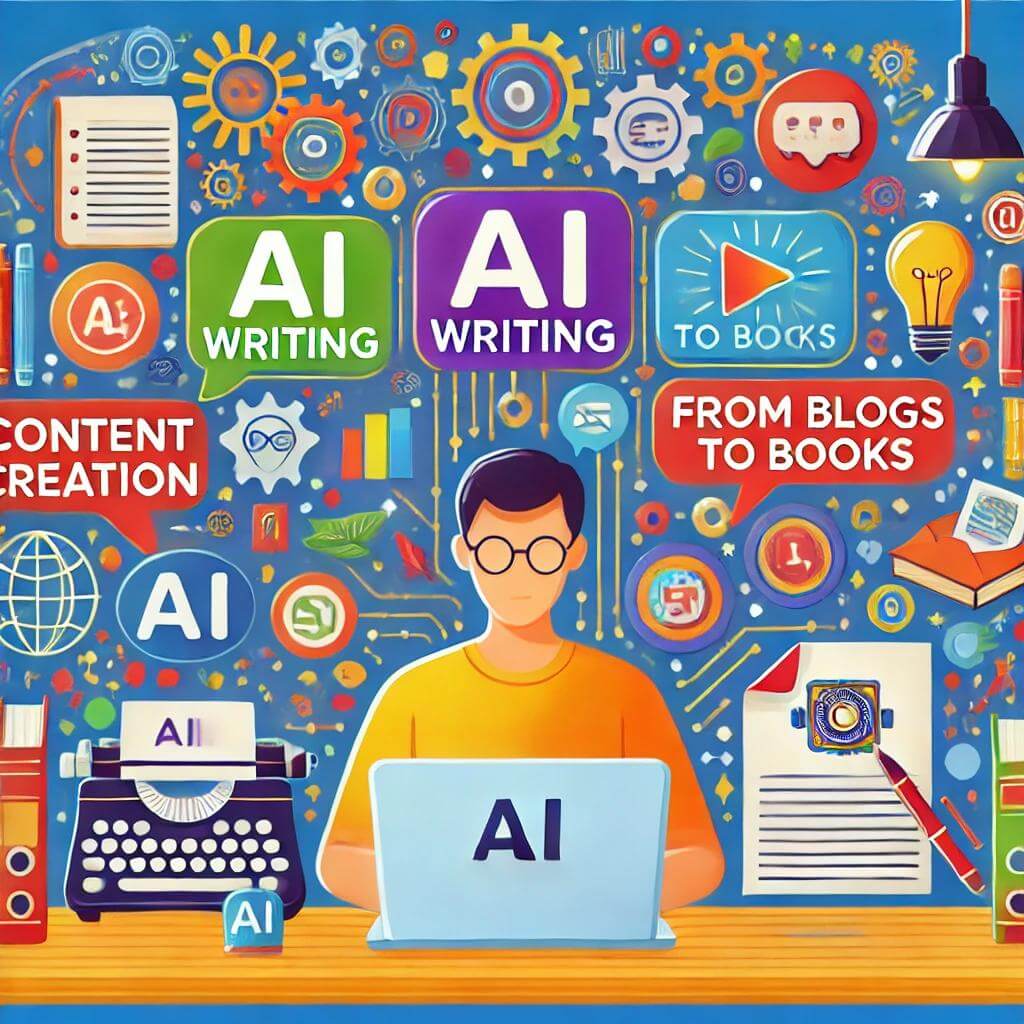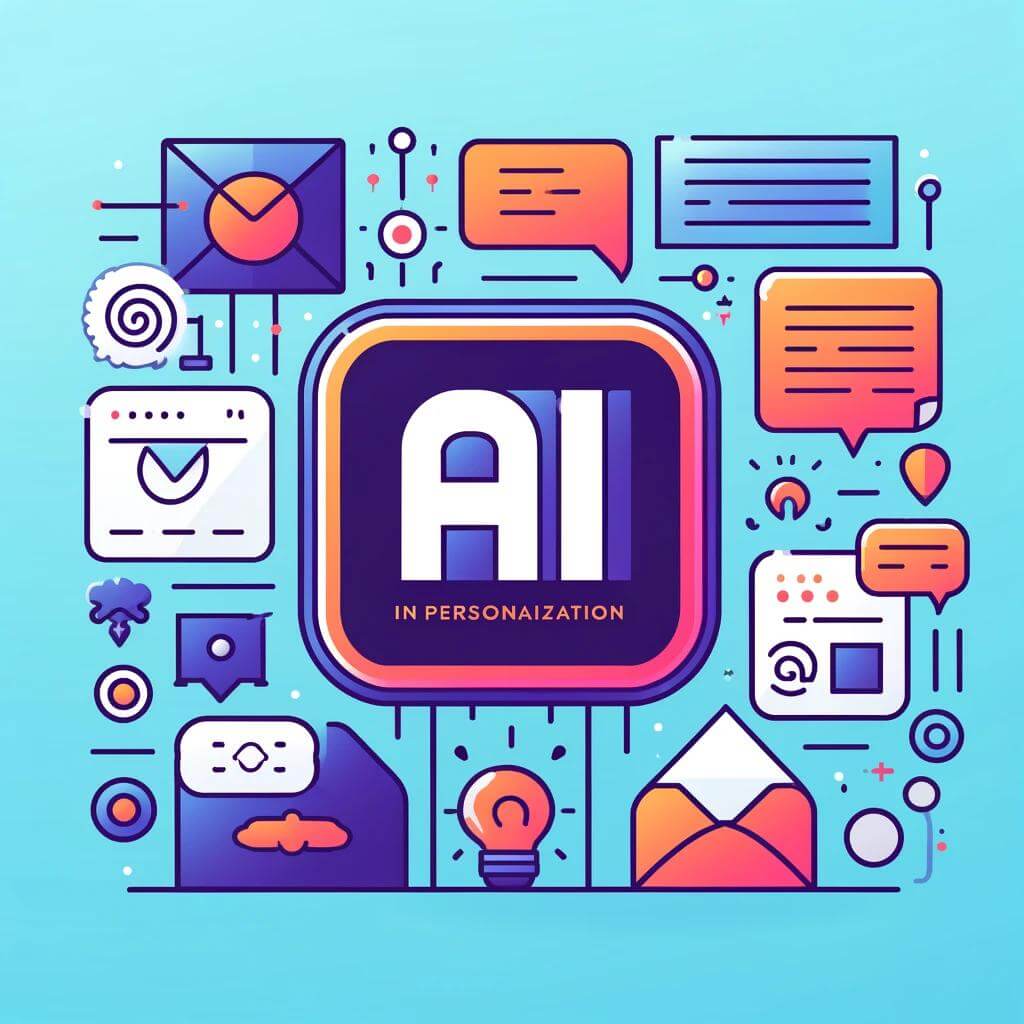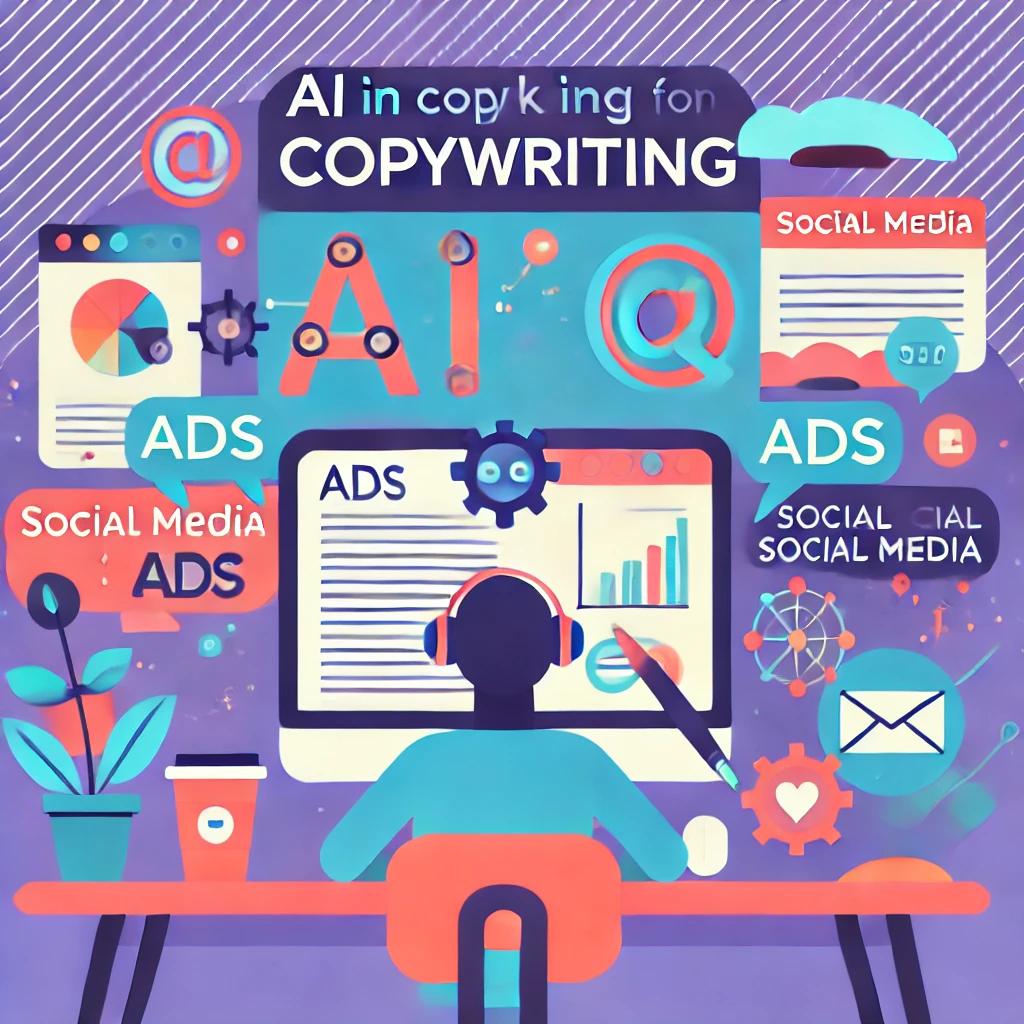How AI is Transforming Content Creation: From Blogs to Books
The rapid evolution of Artificial Intelligence (AI) is transforming content creation. No longer restricted to data analysis or customer service applications, AI is now a powerful tool for writers, bloggers, and authors. AI technology is making content creation faster, more consistent, and highly accessible, reshaping everything from blogs and social media posts to entire books. This article explores how AI writing tools are transforming the creative process, discussing the main benefits, how they work, and their implications for the future.
The Rise of AI Writing Tools
As AI tools have advanced, they’ve become increasingly popular among writers and content creators. AI is no longer a distant futuristic idea; it’s a readily available resource, accessible through various user-friendly platforms.
Key Examples of AI Writing Tools
AI tools like ChatGPT and Jasper offer solutions for various writing tasks, each catering to different content creation needs:
| Tool | Description | Ideal Uses |
|---|---|---|
| ChatGPT | A versatile AI tool by OpenAI, capable of producing conversational responses for a wide range of writing tasks. | Blog writing, creative storytelling, and dialogue generation. |
| Jasper | Known for its templates designed for specific tasks like social media captions, email drafts, and blog posts. | Marketing, e-commerce, and structured content creation. |
These tools use Natural Language Processing (NLP) to interpret prompts and generate coherent, human-like responses. NLP enables AI to recognize language patterns, adapt to various writing styles, and deliver content aligned with the user’s intended message.
Benefits of Using AI in Content Creation
AI tools are transforming content creation with distinct advantages, helping writers streamline their processes. Here’s a look at the primary benefits AI brings to writers:
1. Speed and Efficiency
AI’s ability to quickly generate drafts saves time for creators, allowing them to focus on refining ideas rather than starting from scratch.
2. Consistency in Tone and Style
For projects that require a uniform voice, such as branded content or serialized stories, AI helps maintain a consistent tone across all written pieces.
3. Creativity Boost
AI is an excellent brainstorming partner, offering suggestions and ideas that writers may not have considered, helping overcome creative blocks.
4. Error-Free Content
Many AI tools come with grammar and style checks, ensuring that content is polished and professional.
How AI Generates Text Based on Prompts
AI content generation works on the principles of predictive modeling. Here’s how it transforms a prompt into coherent text:
1. Prompt Interpretation
When a user inputs a prompt, AI breaks it down, analyzing the main keywords and the tone implied by the wording.
2. Predictive Text Generation
Using its trained language model, the AI predicts the most probable sequence of words or phrases that align with the input. The result is content that reads logically and is relevant to the prompt.
3. Fine-Tuning
Advanced AI models, like GPT, fine-tune responses with each input, adapting to stylistic nuances and generating increasingly refined responses.
Examples of AI-Assisted Blog Writing
AI tools are particularly beneficial for bloggers, supporting them from idea generation through to publishing. Below are some specific ways AI enhances blog writing:
1. Brainstorming Topic Ideas
AI can generate a list of blog topics by analyzing keywords and trends. Here’s an example:
| Prompt | AI-Suggested Topics |
|---|---|
| “Health and wellness blog topics” | – Benefits of Mindfulness for Mental Health |
| – How to Build a Balanced Workout Routine | |
| – Essential Nutrition Tips for Beginners |
2. Drafting Content Quickly
Once a topic is chosen, AI can help generate a draft based on specific points. For instance, with a prompt like “write a 200-word introduction on sustainable travel,” the AI creates a draft that can be refined and expanded by the blogger.
3. Editing and Proofreading
AI tools often have built-in grammar and style checks, allowing bloggers to ensure their content is free of typos and flows smoothly.
AI-Assisted Book Writing: From Concept to Manuscript
Beyond blogging, AI is also proving to be a powerful tool in book writing. Whether it’s fiction, non-fiction, or memoirs, AI can help authors organize their thoughts, develop ideas, and even write sections of the manuscript.
Creating Outlines and Plot Structures
AI tools are useful for outlining book ideas, breaking them down into chapters, and suggesting plot elements for fiction writing. For example:
| Writing Task | AI Support |
|---|---|
| Chapter Outline | Generates a high-level outline with chapter themes. |
| Character Development | Suggests traits and backstory for main characters. |
| Plot Development | Proposes story twists or challenges for the protagonist. |
With this support, authors can approach their projects more strategically, turning a basic idea into a well-structured outline.
Drafting and Expanding on Ideas
After setting an outline, authors can use AI to draft entire scenes or develop character dialogue, making the writing process more manageable.
Enhancing Creativity with AI
AI doesn’t just support the technical side of writing; it also enhances creativity by inspiring new ideas. Many authors and writers use AI as a brainstorming partner, enabling them to explore new directions for their work.
Supporting Idea Generation
Writers can enter broad prompts to receive lists of potential themes, dialogue suggestions, and character quirks. This provides a fresh perspective, particularly helpful for overcoming creative blocks.
Exploring New Styles and Genres
With AI, writers can experiment with different genres or narrative tones, using prompts to generate examples and explore new writing styles without a significant time commitment.
Challenges of Using AI in Content Creation
While AI is a valuable tool, it does come with certain challenges that writers should be aware of:
| Challenge | Explanation |
|---|---|
| Authenticity Issues | AI-generated content may lack the personal touch of human writing. |
| Copyright Concerns | AI pulls from existing data, raising potential plagiarism issues. |
| Dependence on AI | Over-reliance on AI can hinder the development of writing skills. |
These challenges underscore the importance of using AI thoughtfully and balancing its benefits with personal creativity.
The Future of AI in Content Creation
As AI continues to evolve, its potential applications in content creation will likely expand. Here’s a look at how AI might shape the future of writing:
1. Increased Personalization
Future AI tools may learn individual writing preferences, allowing for more personalized content generation that aligns closely with the writer’s unique style.
2. Enhanced Real-Time Collaboration
With advanced AI, writers could collaborate with AI in real-time, receiving suggestions, edits, and ideas as they write, creating a dynamic, interactive writing process.
3. Expanded Accessibility
AI can make writing more accessible to those with disabilities, non-native speakers, and others facing writing challenges, democratizing content creation across broader demographics.
Conclusion
The influence of Artificial Intelligence on content creation is profound, offering writers tools that support efficiency, creativity, and accessibility. From generating blog ideas to drafting book chapters, tools like ChatGPT and Jasper are changing how content is created and shared. While AI cannot fully replace human creativity, it serves as a valuable ally in the creative process, helping writers focus on what matters most—expressing ideas and telling compelling stories. The future of writing lies in the collaboration between human creativity and AI, promising a world of new possibilities in storytelling and content creation.



8 comments